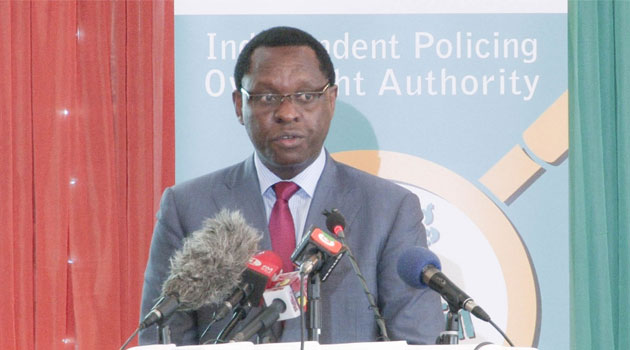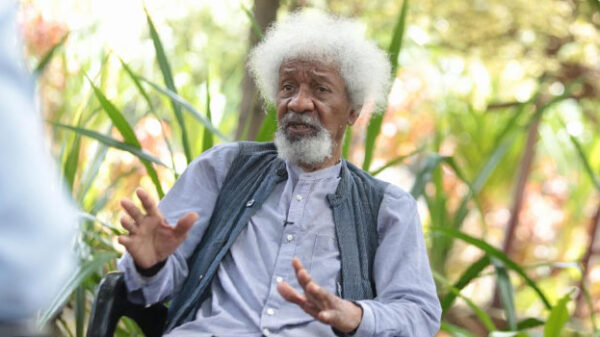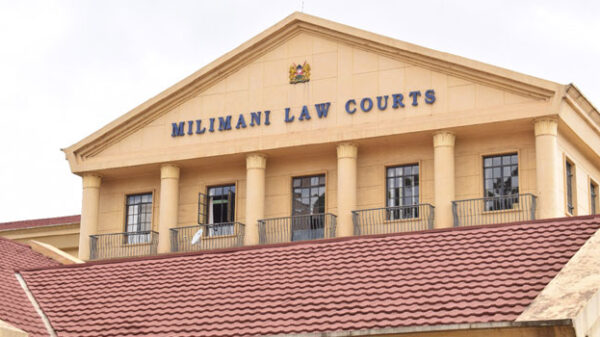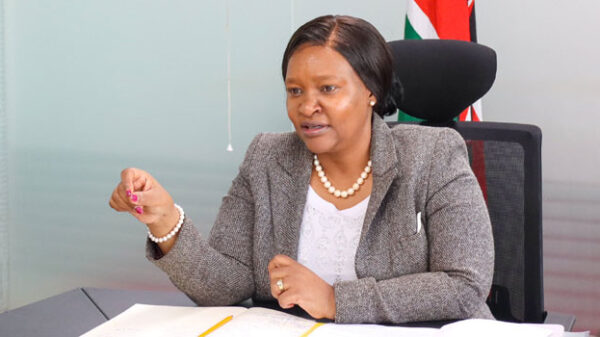
Ogeto observed that a justice system that was steeped in bureaucratic morass, non-transparent processes and decisions that are not impartial would suffer the ignominy of rejection no matter its high sounding objectives/FILE
NAIROBI, Kenya, Dec 7 – Kenya has welcomed the efforts by the International Criminal Court (ICC) Prosecutor to institute investigations and take action on those found culpable of professional misconduct on matters regarding Kenya.
Kenya stated that it expected more transparency and openness on the details and nature of investigations carried out. It has called upon delegations of State Parties to the Rome Statute to consider and adopt the proposed amendments to Article 70 that aim at deterring misconduct by court officials.
“The allegations against the former prosecutor should not be swept under the carpet. Kenya urges the Office of the Prosecutor to refer the allegations to an external impartial and neutral entity to conduct an open and transparent audit of these allegations.” The Solicitor General and Head of the Kenyan delegation, Kennedy Ogeto made the remarks Thursday at the 17th Session of the Assembly of States Parties to the Rome Statute taking place at the International Criminal Court in The Hague, Netherlands.
Ogeto observed that a justice system that was steeped in bureaucratic morass, non-transparent processes and decisions that are not impartial would suffer the ignominy of rejection no matter its high sounding objectives.
Kenya has also demanded that the implementation of the Statute by all organs of the Court ought to be conducted in the most fair, equal and transparent fashion in order to foster trust, credibility and legitimacy in the system. Kenya alluded to the decade long trial of Jean Pierre Bemba calling for clear and determinate statement of Charge by the office of the Prosecutor as well a rigorous evaluation of evidence by the Trial Chamber so as to protect the liberties of the accused person and ensure that trials are not unduly prolonged.
Kenya observed that similar lessons could be drawn from the cases in Kenya where, even the judges of the Court themselves were critical of the Prosecution’s conduct. This, Kenya noted was manifest in the prosecution’s investigative techniques that ignored evidence in a criminal trial that supported the idea that the defendant was not guilty while the quality of some of the evidence submitted presented substantial and fundamental integrity and ethical questions.
The Solicitor General reiterated that co-operation with the Court remained a central obligation of every state party by virtue of membership. Kenya has previously discharged this obligation notably during the pendency of situations touching on the country. Further, it has granted unfettered access into Kenya to the former and current Prosecutor of the ICC, staff members of the ICC, Registry Officials, Defense Counsel, Victims’ Counsel and their respective investigators. The Government endorsed the establishment of an ICC field Office to enhance cooperation and assistance on all matters regarding Kenya.
Ogeto told the International Court that Kenya continued to operate under the rule of law, and acted in accordance with constitutional and judicial edicts despite criticism. He informed that Kenyan courts had in the past made decisions affecting the arrest and surrender of certain individuals accused of offences under Article 70 of the Statute, decisions the Executive had no choice but abide by, regardless of whether it agreed with them or not.
“It is worth noting that the country’s Judiciary remains one of the most independent judiciaries in the world with a supervisory role over the actions of other organs of government, including the Executive,” Ogeto stated of the country’s judiciary.
In the same vein, Kenya has urged the International Court to live up to the requirements of the principle of complimentarity that the Rome Statute imposes. It argued that rather than increase its docket with cases that could be dealt with more efficiently and effectively at the national level, the Court should instead concentrate on creating synergies with countries for domestic prosecution of these cases.
On the issue of the execution of arrest warrants from the International Court, touching on Heads of States, Kenya aligns itself with the African Union position that a Head of State enjoys immunity from prosecution based on customary international law. Kenya has argued that this was the clear intent of Article 98 of the Rome Statute and should not be defeated or countered by other provisions of the same Statute.
During Thursday’s meeting, Kenya raised its objection to any increase in the ICC budget for the year 2019 stating that the increase was not merited. It has instead called for better use of resources including an interrogation of all activities of the Court especially in the preliminary examinations and cases.
“Kenya is convinced that keeping cases alive despite the apparent flaws in the manner they were investigated and are being prosecuted not only amounts to a misappropriation of funds but also a travesty of the Rome Statute system,” the Head of the Kenyan delegation, Ogeto stated.
The Head of delegation has urged delegations at the meeting to “scrupulously engage each other, learn from our past mistakes and build a Court that is a better fit for purpose and one that can take its place as the premier international criminal judicial system.”










































